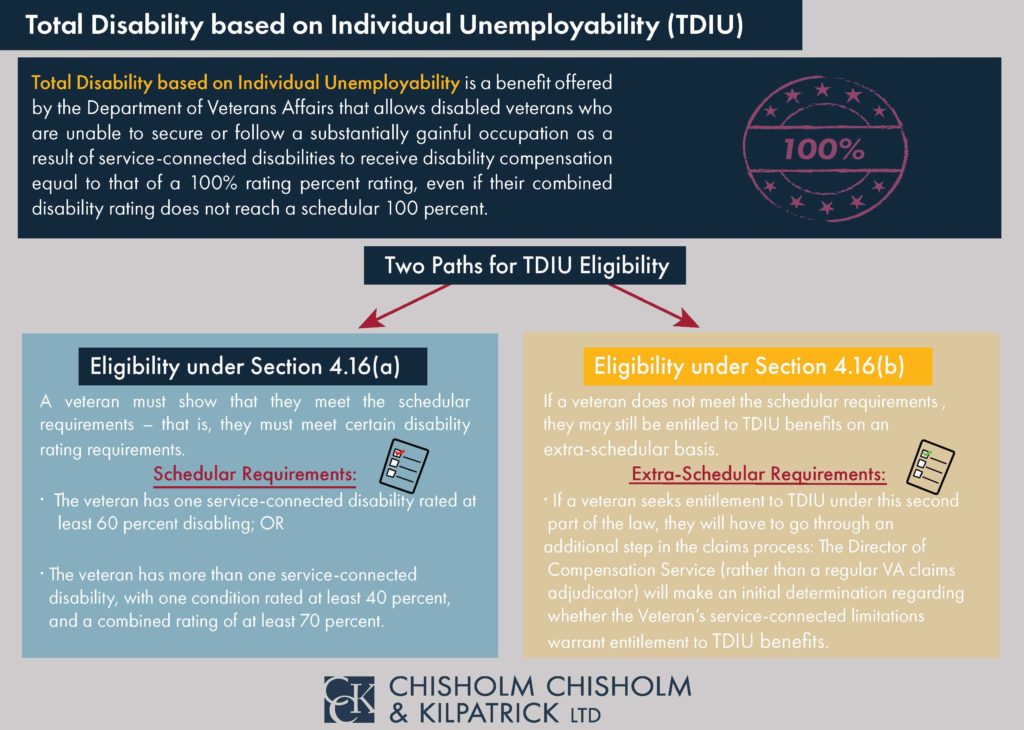Veterans (VA) Disability Benefits for Schizophrenia

CCK Law: Our Vital Role in Veterans Law
What is Schizophrenia?
Schizophrenia is a chronic and severe mental disorder that interferes with a person’s ability to think clearly, manage emotions, make decisions, and relate to others. Research has shown that while this condition affects men and women equally, it may have an earlier onset in males.
Symptoms of Schizophrenia
For a diagnosis of schizophrenia, symptoms must be present in the context of reduced functioning for at least six months. Symptoms generally fall into three categories:
- Positive Symptoms: Positive symptoms are psychotic behaviors not typically seen in the general population. Examples include hallucinations, delusions, thought disorders, and movement disorders (agitated body movements).
- Negative Symptoms: Negative symptoms are associated with disruptions to normal emotions and behaviors. Examples include flat affect (reduced expression of emotions via facial expression or voice tone), reduced feelings of pleasure in everyday life, difficulty beginning and sustaining activities, and reduced communication.
- Cognitive Symptoms: Cognitive symptoms can include changes in memory or other aspects of thinking. Examples include poor executive functioning (the ability to understand information and use it to make decisions), trouble focusing or paying attention, and problems with working memory (the ability to use information immediately after learning it).
Diagnosing Schizophrenia
The diagnostic process also involves ruling out other mental health disorders and determining that the above-mentioned symptoms are not due to substance abuse, medication, or a medical condition. This is often done through physical examinations, tests and screenings, and psychiatric evaluations.
Treating Schizophrenia
While there is currently no cure for schizophrenia, treatments focus on eliminating the symptoms of the condition. The most popular treatments include antipsychotic medications, psychosocial therapies, and coordinated special care (an integration of medication, psychosocial therapies, case management, etc.).
Service Connection for Schizophrenia
Schizophrenia is one of the mental health conditions for which veterans can obtain service connection. To establish service connection for schizophrenia, veterans must show three things:
- A current diagnosis of schizophrenia, AND
- An in-service event or stressor, AND
- A medical nexus linking the veteran’s schizophrenia and the in-service event or stressor
To prove an in-service event or stressor, veterans may wish to submit treatment records from their service or lay statements. The in-service event or stressor should be linked to the veteran’s schizophrenia, in that it either caused the veteran’s schizophrenia or aggravated the veteran’s pre-existing schizophrenia.
A medical nexus is a statement from a qualified healthcare professional affirming that they believe your condition was “at least as likely as not” caused by your military service.

How VA Rates Schizophrenia
After service connection is granted, VA will assign a disability rating to reflect the severity of the veteran’s schizophrenia. While VA has different diagnostic codes for different mental illnesses, all mental health conditions are evaluated under the same rating criteria according to 38 CFR § 4.130.
VA rates schizophrenia under Diagnostic Code 9411. Ratings are assigned based on many factors, such as treatment via medications; symptoms; and the ability to work, care for oneself, and maintain social relationships. Based on the overall level of impairment across these factors, VA will assign a disability rating percentage of 0, 10, 30, 50, 70, or 100. Below are the criteria outlined for each rating:
- 100% – This rating is for veterans who experience “total occupational and social impairment.” Symptoms may include gross impairment in thought processes or communication, persistent delusions or hallucinations, grossly inappropriate behavior, persistent danger of hurting self or others, intermittent inability to perform activities of daily living (such as minimal maintenance of personal hygiene), disorientation to time or place, memory loss for names of close relatives, occupation, or name.
- 70% – Veterans rated at 70 percent experience occupational and social impairment, with deficiencies in “most” areas. Symptoms may be similar to those listed above in the 100 percent criteria. Impairment may affect the veteran’s work, school, family relations, thinking or mood. Veterans rated at this level may also experience suicidal ideation.
- 50% – The 50 percent rating is given to veterans with occupational and social impairment, specifically with “reduced reliability and productivity.” Symptoms can include panic attacks more than once a week, difficulty understanding complex commands, loss of memory, impaired judgement, disturbances of mood, and difficulty establishing and maintaining effective work and social relationships.
- 30% – To secure the 30 percent rating, veterans will experience occupational and social impairment with “occasional decrease in work efficiency” and periods of inability to perform occupational tasks. Symptoms may include depressed mood, anxiety, suspiciousness, panic attacks, chronic sleep impairment, and mild memory loss.
- 10% – 10 percent ratings are given to veterans with occupational and social impairment from “mild or transient symptoms” that can decrease work efficiency or the ability to perform occupational tasks during periods of stress.
- 0% – The 0 percent rating is non-compensable, meaning that it is not associated with any financial compensation. However, this rating is still important because it establishes service connection for the condition and can potentially help the veteran receive an increased rating in the future. With the 0 percent rating, veterans have a diagnosis, but the symptoms may not be severe enough to interfere with occupational or social functioning.
Secondary Conditions Associated with Schizophrenia
Secondary service connection is established when you can prove that a disability resulted from a condition that is already service connected. Here, providing a nexus opinion that links your secondary disability to your already service-connected disability is extremely important. There are several conditions associated with schizophrenia that could either warrant secondary service connection or contribute to your overall disability rating. Examples include the following:
Major Depressive Disorder
Since all mental health conditions are evaluated using the same rating criteria, veterans with multiple mental health conditions (e.g. schizophrenia and depression) will likely be assigned one combined rating. However, many individuals with schizophrenia also experience depression as they tend to be socially isolated and lose feelings of pleasure in everyday life.
Veterans who have both depression and schizophrenia cannot receive separate ratings for both conditions, as this is considered pyramiding. However, the impairment caused by the depression should be taken into account when VA is assigning a rating. Importantly, this may contribute to a higher percentage than you would have received if it was based on your schizophrenia alone.
Cardiovascular Disease
Research indicates that individuals with schizophrenia are two to three times more likely to suffer from cardiovascular disease due to the increased rates of obesity, depression, and anxiety. If you are service connected for schizophrenia and later develop cardiovascular disease, you may be able to establish secondary service connection and receive additional disability benefits.
Diabetes Mellitus
Studies also show that there is a three- to four-fold increase in diabetes amongst individuals with schizophrenia. This increase is likely the result of a poor diet and lack of exercise, along with antipsychotic medications that may cause obesity. Secondary service connection may be warranted in this case as well.

TDIU Benefits with Schizophrenia
Schizophrenia can often be a debilitating mental disorder, capable of preventing a veteran from obtaining or maintaining employment. Veterans in this situation may be eligible for TDIU, or total disability based on individual unemployability.
TDIU is a monthly VA benefit that compensates veterans at the 100 percent level if they are prevented from working because of their conditions.
In order to be eligible for schedular TDIU, veterans must have one condition rated at 60 percent minimum OR two conditions that can be combined to reach 70 percent, where one condition is at minimum 40 percent. The criteria for schedular TDIU is outlined under 38 CFR § 4.16a.
Secondary service connection can be extremely helpful in boosting veterans to the 70 percent minimum needed for multiple conditions to achieve TDIU.
For example, if a veteran is rated at 50 percent for their schizophrenia and rated at 20 percent for their secondary service-connected diabetes mellitus, then they would meet the criteria for schedular TDIU. In this case, the rating for the secondary service-connected condition is extremely helpful because it enables the veteran to be eligible for TDIU where they otherwise would not be with only a 50 percent rating for schizophrenia.
Veterans who do not meet the necessary criteria for schedular TDIU may be eligible for extraschedular TDIU. For this form of TDIU, veterans must prove that their condition(s) uniquely hinders their ability to maintain substantially gainful employment. Extraschedular TDIU is rated under 38 CFR § 4.16b.
Overcoming a Denied Schizophrenia Claim
Schizophrenia claims for VA disability benefits can be notoriously difficult to win. In many cases, VA can often make mistakes when adjudicating schizophrenia claims, such as not taking into consideration certain pieces of evidence in the veteran’s c-file, and may deny the claim wrongly. Alternatively, if the veteran’s schizophrenia was pre-existing to their service, yet was significantly aggravated by their service, VA may deny the claim without assessing how the veteran’s service impacted their schizophrenia.
Oftentimes, a veteran seeking VA disability benefits for schizophrenia can benefit from the aid of an accredited representative. An accredited representative can typically help veterans navigate the complexities of the claims and appeals process. Additionally, accredited representatives can file claims and appeals, submit evidence, and correspond with VA on behalf of the veteran.
If you need an accredited representative to help you with your appeal for VA disability benefits for schizophrenia, the veterans advocates at Chisholm Chisholm & Kilpatrick may be able to help. Contact our office today for a free case evaluation.
About the Author
Share this Post
